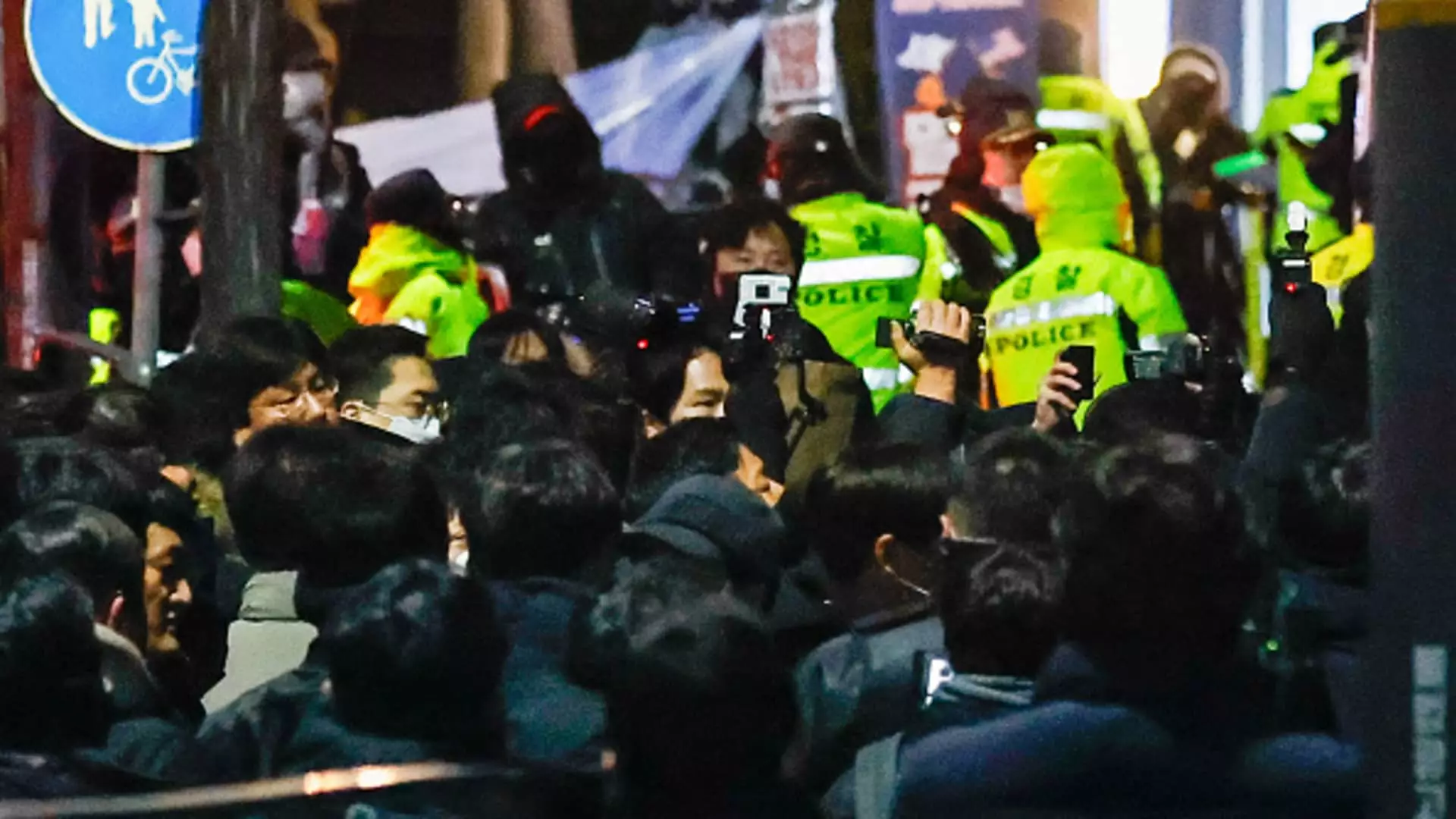In a shocking development that marks a significant chapter in South Korea’s political history, President Yoon Suk Yeol was reportedly arrested by the Corruption Investigation Office (CIO) for High-Ranking Officials. This unprecedented action against a sitting president has sent ripples through the political landscape, raising questions about governance, legality, and the implications for South Korea’s democratic institutions.
The timeline leading up to Yoon’s arrest reveals a series of dramatic events, underscoring the fragility of power in South Korea. Just weeks earlier, a failed attempt to arrest Yoon had been obstructed by members of his Presidential Security Service, who prevented investigators from accessing his residence on January 3. This tense face-off illustrated the high stakes involved and foreshadowed the complexities surrounding Yoon’s leadership. On this second attempt, approximately 3,000 police officers were mobilized to secure access to Yoon’s compound, further emphasizing the seriousness of the situation.
In a pre-recorded address prior to his arrest, Yoon articulated his grievances, claiming that “the law of the country has collapsed” and suggesting that the investigation led by the CIO was both unwarranted and illegal. His controversial declaration of martial law on December 3, aimed at quelling perceived threats from “North Korean communist forces” and other “antistate forces,” had already set the stage for political upheaval. This declaration was met with swift backlash from the National Assembly, which blocked the measure and subsequently initiated impeachment proceedings against him.
Yoon now faces serious allegations, including insurrection, stemming from his attempted declaration of martial law. This charge is exceptionally serious as it is not shielded by presidential immunity and carries severe penalties, including the death penalty in its most extreme interpretation. The intensity of these accusations reflects the gravity of the political crisis and the delicate balance that South Korean democracy struggles to maintain.
In the wake of these tumultuous events, South Korean financial markets exhibited a relatively subdued reaction. The blue-chip Kospi index managed a modest gain of 0.21%, while the small-cap Kosdaq slipped by 0.44%. Meanwhile, the South Korean won experienced slight depreciation against the U.S. dollar, and bond yields rose, indicating a cautious sentiment among investors. This reaction illustrates how political instability can ripple through economic sectors, influencing investor confidence.
As the impeachment trial against Yoon progresses and the nation grapples with the ramifications of these events, South Korea finds itself at a pivotal crossroads. The outcome of the ongoing investigation, coupled with public sentiment and legislative responses, will shape the nation’s political future in profound ways. The eyes of the world will remain on South Korea as it navigates this unprecedented crisis, striving to reinforce the democratic norms that underpin its governance. The coming days and weeks will be critical in determining whether Yoon can reclaim his position or if South Korea will set a transformative precedent for addressing corruption and accountability at the highest levels of power.


Leave a Reply